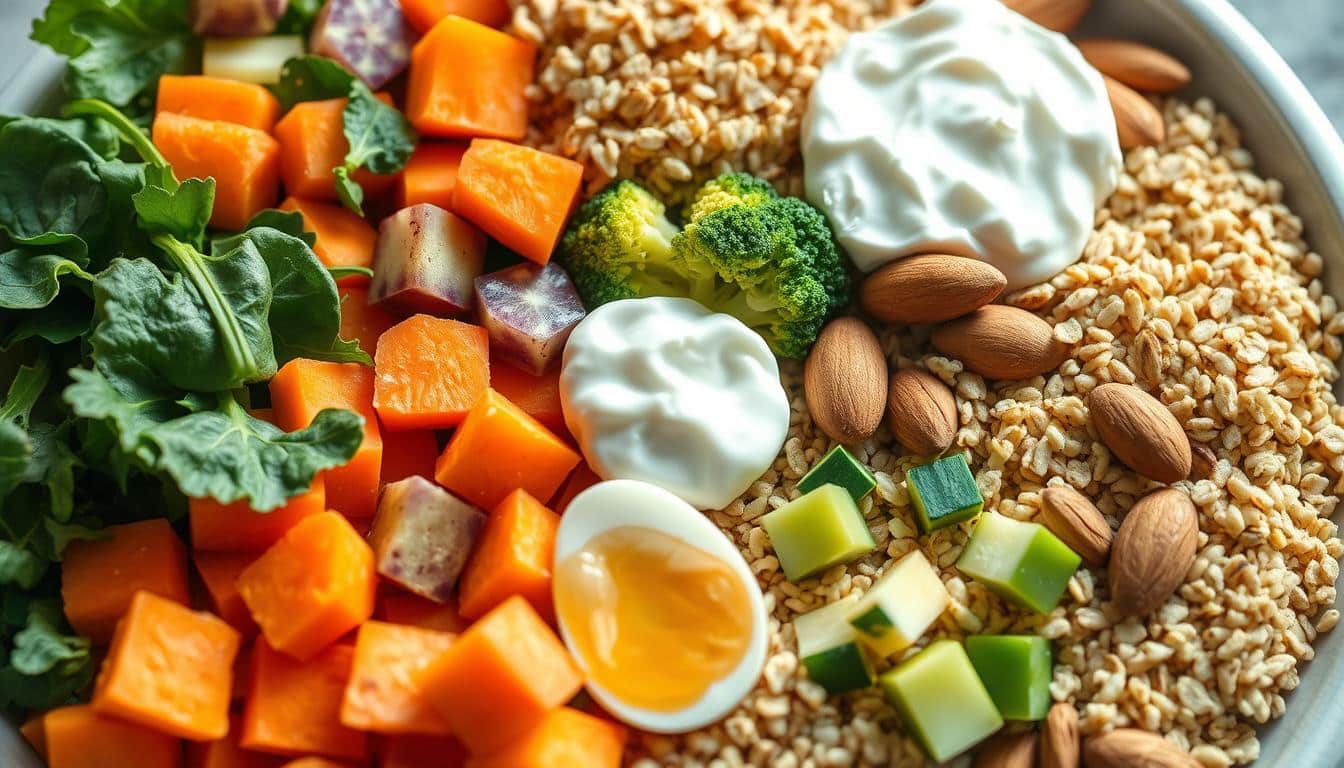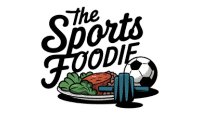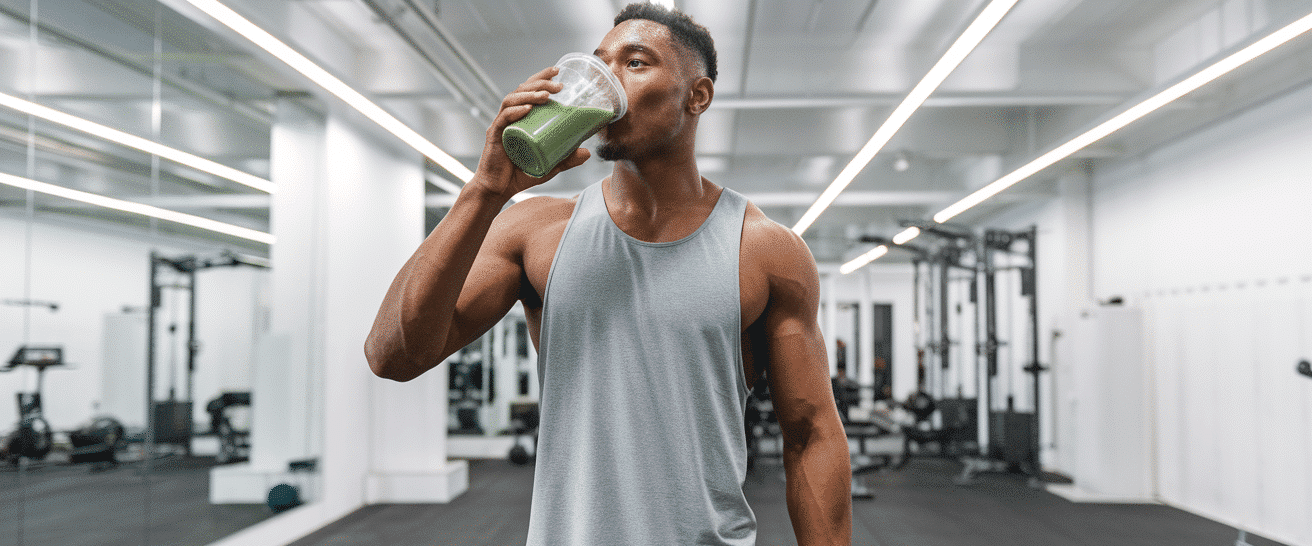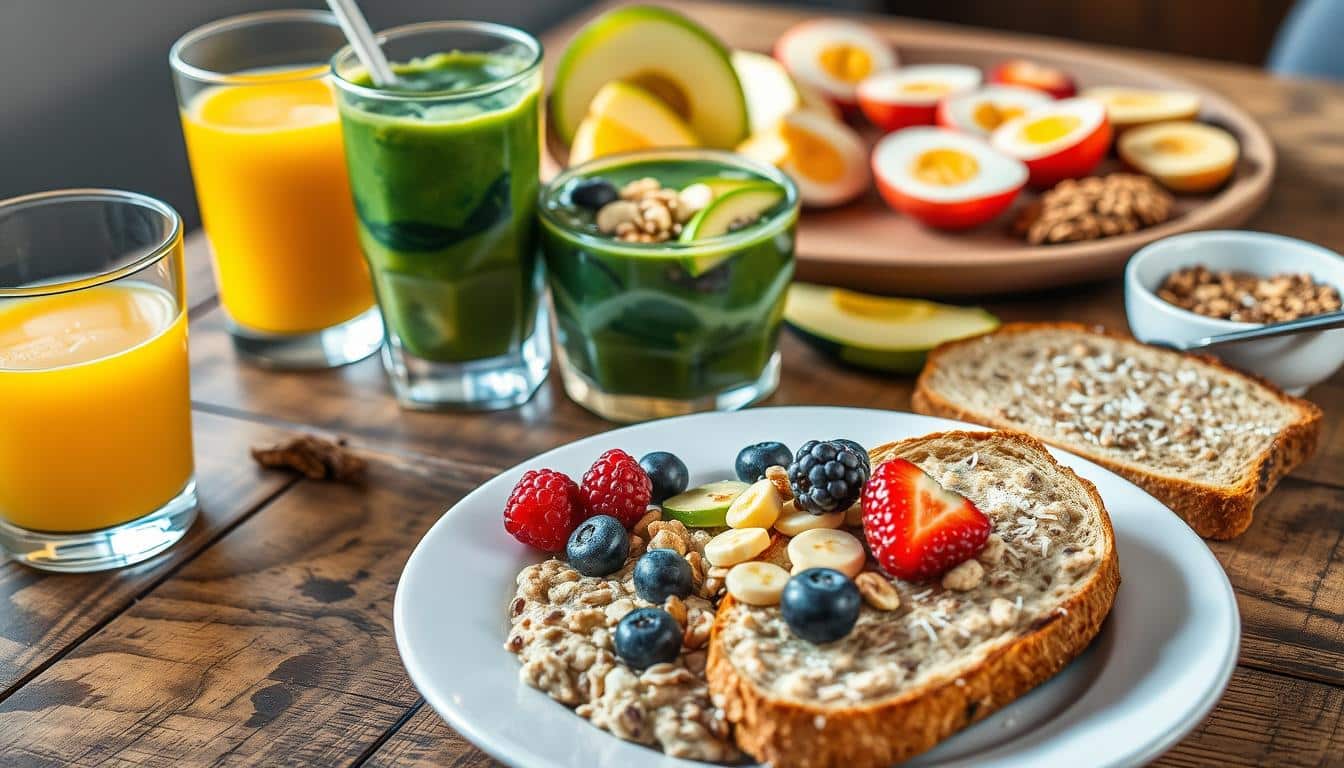Starting your day with the right fuel can make a big difference in how you feel and perform. Whether you’re hitting the gym or going for a run, eating before exercise helps boost your energy and keeps your muscles strong. Skipping breakfast can leave you feeling sluggish and slow down your progress.
Finding quick and easy options is key, especially when you’re short on time. Simple carbs and protein-rich foods can give you the power you need without slowing you down. Hydration is also important to keep your body running smoothly.
Experimenting with different foods can help you find what works best for you. The right meal can improve your endurance, focus, and recovery. Let’s explore some fast and effective ways to fuel up before your next session.
Why Pre-Workout Breakfast Matters
Fueling up before exercise sets the tone for a productive session. Skipping breakfast can lead to energy crashes, making it harder to push through your routine. A balanced meal helps maintain stable blood sugar levels, keeping you focused and energized.

Eating before exercise also supports muscle recovery by reducing protein breakdown. This ensures your body has the nutrients it needs to repair and grow stronger. Plus, a proper meal replenishes glycogen stores, giving you the stamina to perform at your best.
Here’s why a pre-workout breakfast is essential:
- Prevents mid-session fatigue and energy dips.
- Enhances cognitive focus during physical activity.
- Supports weight loss goals by curbing overeating later in the day.
- Improves strength and endurance metrics for better results.
Timing matters too. Everyone’s body is different, so experiment to find what works for you. Whether it’s 30 minutes or 2 hours before, eating the right foods can make all the difference in your performance.
Key Nutrients for a Pre-Workout Meal
The right nutrients can transform your energy levels and performance. To fuel your body effectively, focus on three main components: carbohydrates, protein, and fats. Each plays a unique role in helping you train harder and recover faster.

Carbohydrates: Your Primary Energy Source
Carbohydrates are your body’s go-to fuel for intense activity. They replenish glycogen stores, which are essential for endurance. Simple carbs like bananas or white bread digest quickly, giving you an immediate energy boost. Complex carbs, such as oats or sweet potatoes, provide sustained energy for longer sessions.
Here’s how to use carbs effectively:
- Choose simple carbs if you’re eating within 30 minutes of training.
- Opt for complex carbs if you have 1-2 hours before your session.
- Adjust fiber content based on timing to avoid digestive discomfort.
Protein: Essential for Muscle Repair
Protein is crucial for repairing and building muscle mass. Consuming 20-30g of protein before exercise can enhance muscle synthesis and reduce breakdown. Whey protein absorbs faster than plant-based options, making it a popular choice for quick digestion.
Tips for incorporating protein:
- Pair protein with carbs for a balanced meal.
- Consider liquid options like smoothies for faster absorption.
- Experiment with timing to find what works best for your body.
Fats: Use Sparingly Before Exercise
While fats are important for overall health, they should be limited before a workout. High-fat meals can slow digestion, leaving you feeling sluggish. Aim for less than 10g of fats if you’re eating within 60 minutes of training.
Here’s how to manage fats:
- Choose light sources like nut butter or avocado in small amounts.
- Avoid heavy, greasy foods that can weigh you down.
- Save higher-fat meals for post-workout recovery.
By balancing these nutrients, you’ll set yourself up for a successful session. Experiment with different combinations to find what fuels your body best.
Best Morning Pre-Workout Meals for Quick Energy
Quick energy boosts can make your session more effective and enjoyable. The right snacks can elevate your performance instantly, especially when you’re short on time. Let’s explore some fast and easy options to fuel your body.
Liquid options like smoothies and protein shakes digest quickly, making them ideal for rushed mornings. Pair fast-acting carbs with light protein sources for a balanced boost. Portable snacks like rice cakes with almond butter or a banana with peanut butter are perfect for on-the-go fuel.
Pre-made choices save time and effort. Overnight oats or hard-boiled eggs are great for busy schedules. Room temperature foods are easier to digest, so avoid anything too cold or hot. Everyone’s tolerance is different, so experiment to find what works best for you.
Here’s a quick comparison of popular options:
| Meal Option | Carbs | Protein | Digestion Speed |
|---|---|---|---|
| Greek Yogurt Parfait | Moderate | High | Medium |
| Rice Cakes with Almond Butter | High | Moderate | Fast |
| Banana with Peanut Butter | High | Moderate | Fast |
| Protein Bars | Moderate | High | Medium |
| Chocolate Milk | High | Moderate | Fast |
| Smoothies | High | Moderate | Fast |
Calorie needs vary based on your workout intensity and duration. Keep emergency snacks in your gym bag for those extra busy mornings. With the right fuel, you’ll feel energized and ready to tackle any session.
30-60 Minutes Before Workout: Quick Options
When time is tight, the right snack can power you through your session. In the 30-60 minutes before exercise, focus on foods that digest quickly and provide instant energy. These options are perfect for busy mornings or when you’re rushing to the gym.
Banana with Peanut Butter
A banana paired with peanut butter is a classic choice. Bananas are rich in potassium, which helps prevent cramps during your minutes workout. The natural fats and protein in peanut butter provide sustained energy without weighing you down.
Preparation tip: Spread a tablespoon of peanut butter on a banana for a portable snack. Add a sprinkle of cinnamon to stabilize blood sugar levels.
Greek Yogurt with Berries
Greek yogurt is packed with protein and probiotics, making it great for gut health. Adding berries gives you a quick boost of natural sugars and antioxidants. This combo is light yet effective for fueling your body.
Preparation tip: Pre-portion yogurt and berries in a reusable container for convenience. Opt for unsweetened yogurt to avoid added sugars.
White Toast with Jelly
White toast with jelly is a simple way to get fast-acting carbs. The jelly provides quick sugars without the fiber that can slow digestion. Use sourdough or sprouted bread for easier digestion and added nutrients.
Preparation tip: Toast the bread lightly and spread a thin layer of jelly. Pair it with green tea for a caffeine boost without the jitters.
For more ideas on high-energy snacks, check out this guide on high-energy breakfast foods. These quick options ensure you’re fueled and ready to perform at your best.
1-2 Hours Before Workout: Balanced Mini Meals
Planning your meal 1-2 hours before exercise can optimize your performance and energy levels. This timing allows your body to digest and absorb the nutrients effectively, giving you the fuel you need for a strong session. Balanced mini meals with the right mix of carbs protein can sustain your stamina and keep you focused.
Oatmeal with Protein Powder
Oatmeal is a classic choice for sustained energy. Adding protein powder boosts its muscle-supporting benefits. Steel-cut oats are particularly effective for maintaining stable energy levels during longer sessions. Here’s how to make it work:
- Mix whey protein into oatmeal after cooking for better texture.
- Add collagen peptides for joint support and extra protein.
- Top with chia seeds for omega-3s and added crunch.
Rice Cakes with Almond Butter
Rice cakes are light and easy to digest, making them perfect for a pre-session snack. Pairing them with almond butter adds healthy fats and protein. Choose unsweetened almond butter to limit added sugars. Here’s a quick tip:
- Pre-cook your rice cake toppings for quick assembly.
- Add a drizzle of honey for a touch of natural sweetness.
Low-Fat Granola Bar
Granola bars are a convenient option for busy days. Look for bars with less than 5g of fiber to avoid digestive discomfort. Pair them with tart cherry juice for anti-inflammatory benefits. Here’s what to keep in mind:
- Check the label for added sugars and opt for low-fat options.
- Combine with lactose-free yogurt if you’re dairy-sensitive.
| Meal Option | Carbs | Protein | Digestion Speed |
|---|---|---|---|
| Oatmeal with Protein Powder | High | High | Medium |
| Rice Cakes with Almond Butter | Moderate | Moderate | Fast |
| Low-Fat Granola Bar | Moderate | Low | Fast |
These balanced mini meals are designed to fuel your body effectively for your hours workout. Experiment with these options to find what works best for you.
2-4 Hours Before Workout: Full Meals
Eating a full meal 2-4 hours before your session can set you up for success. This timing allows your body to digest and absorb nutrients, giving you sustained energy and supporting muscle mass. A balanced meal with carbs, protein, and healthy fats can replenish glycogen stores and keep you fueled for longer sessions.
Here are some meal ideas and prep strategies to make your hours workout more effective:
Overnight Oats with Chia Seeds
Overnight oats are a simple, make-ahead option. Combine oats, almond milk, and chia seeds for a nutrient-packed base. Add toppings like berries or nuts for extra flavor and energy. This meal is rich in protein and fiber, making it perfect for sustained fuel.
- Make chia pudding with almond milk for a creamy texture.
- Prepare multiple jars for the week to save time.
- Add a scoop of protein powder for an extra boost.
Breakfast Sandwich with Eggs
A breakfast sandwich is customizable and portable. Use Ezekiel bread for added nutrients and pair it with scrambled eggs and avocado. This combo provides a mix of protein and healthy fats to keep you full and energized.
- Prepare sandwich components the night before for quick assembly.
- Use avocado oil spray for low-fat cooking.
- Freeze breakfast burritos for busy mornings.
Veggie Omelet with Sweet Potatoes
A veggie omelet with roasted sweet potatoes is a hearty option. Sweet potatoes are packed with complex carbs, while eggs provide high-quality protein. Add spinach or bell peppers for an iron and vitamin boost.
- Roast sweet potatoes in bulk weekly for easy prep.
- Combine sweet potatoes with black beans for added protein.
- Use a non-stick pan to minimize oil use.
These meals are designed to fuel your body effectively for your hours workout. Experiment with these options to find what works best for you.
Hydration: The Forgotten Key to Performance
Staying hydrated is just as important as the food you eat for peak performance. Water supports every function in your body, from maintaining blood sugar levels to delivering nutrients to your muscles. Without proper hydration, even the best meal plan won’t help you perform at your best.
Start your day by drinking 16-20oz of water to kickstart your system. Adding a pinch of sea salt can boost electrolytes, which are crucial for maintaining balance during intense workout sessions. Coconut water is another great option—it’s naturally hydrating and free of added sugars.
Here are some practical tips to stay hydrated:
- Sip fluids consistently throughout the day instead of chugging large amounts at once.
- Monitor your urine color—pale yellow means you’re well-hydrated.
- Herbal teas count toward your daily fluid intake and can be a soothing alternative.
- Avoid alcohol the night before a workout—it dehydrates and slows recovery.
For longer sessions, consider chocolate milk as a recovery drink. It replenishes lost fluids and provides a mix of carbs and protein to refuel your energy stores. Sugary sports drinks are best reserved for intense training lasting over 90 minutes.
| Hydration Option | Benefits | Best For |
|---|---|---|
| Water with Sea Salt | Boosts electrolytes, quick absorption | Short, intense sessions |
| Coconut Water | Natural hydration, low sugar | Moderate exercise |
| Chocolate Milk | Replenishes fluids, carbs, and protein | Post-workout recovery |
| Herbal Tea | Calming, counts toward hydration | Daily fluid intake |
Hydration isn’t just about drinking water—it’s about fueling your body for success. By following these tips, you’ll stay energized and ready to tackle any workout.
Foods to Avoid Before a Morning Workout
Choosing the wrong foods before exercise can sabotage your performance. Some options may cause bloating, energy crashes, or digestive discomfort. To stay on track with your weight loss and muscle goals, it’s important to know what to skip.
- Cruciferous vegetables: Broccoli and cauliflower can cause bloating, making it harder to move comfortably.
- High-sugar cereals: These lead to quick energy spikes followed by crashes, leaving you feeling drained.
- Fried eggs: They digest slower than boiled eggs, which can weigh you down during your session.
- Dairy products: If you’re lactose-intolerant, these can cause stomach issues and discomfort.
- Processed meats: High in sodium, they can dehydrate you and slow your progress.
- Energy drinks: While they provide a quick boost, they often lead to jitteriness and crashes.
- Raw vegetables: Hard to digest, they can cause bloating and cramping.
- High-mercury fish: Tuna and similar fish are best avoided before endurance training.
Focus on best foods that are easy to digest and provide steady energy. Limit fat and fiber intake to avoid feeling sluggish. Pairing carbs with protein is a smarter choice for sustained energy and recovery.
Customizing Your Pre-Workout Meal
Tailoring your pre-exercise meal to your specific needs can elevate your performance. Whether you’re training for endurance, strength, or flexibility, your body requires different nutrients to thrive. Let’s break down how to customize your meal plan for optimal results.
For endurance athletes, focus on carbs to sustain energy. Think oatmeal, bananas, or whole-grain toast. Strength trainers should prioritize protein to support muscle recovery. Options like eggs, Greek yogurt, or a protein shake work well. HIIT enthusiasts might benefit from beta-alanine-rich foods like chicken or turkey.
Here’s a quick guide to personalizing your meal:
- Endurance: Carbs are king—opt for whole grains and fruits.
- Strength: Add extra protein to repair and build muscle.
- HIIT: Include beta-alanine for sustained energy bursts.
- Yoga: Keep meals light with smoothies or nuts.
Adjust portion sizes based on your body weight and intensity. Track your energy levels in a journal to identify what works best. Don’t forget to consider food allergies or preferences. Rotate carb sources weekly to keep your meals exciting and effective.
By customizing your fuel workout strategy, you’ll feel stronger, recover faster, and perform at your peak. Experiment with these tips to find your perfect balance.
Benefits of Eating Before a Morning Workout
Eating before your session can unlock hidden potential in your performance. It’s not just about filling your stomach—it’s about giving your body the tools it needs to thrive. From boosting energy levels to supporting muscle recovery, the right meal can make a big difference.
Improved Energy Levels
Fueling up before exercise helps maintain stable energy levels. Studies show that eating beforehand can improve performance by 20-30%. This means you can push harder and last longer during your session. Simple carbs like bananas or toast are great for a quick energy boost.
Enhanced Muscle Recovery
Eating before exercise supports muscle recovery by reducing protein breakdown. Consuming 20-30g of protein can enhance muscle repair rates by up to 15%. This means less soreness and faster recovery after your workout. Whey protein or Greek yogurt are excellent choices.
Better Overall Performance
Proper nutrition before exercise can elevate your overall performance. It replenishes glycogen stores, giving you the stamina to perform at your best. You’ll notice improved reaction times, better weight distribution during lifts, and enhanced mental focus during training.
Here’s a quick summary of the benefits:
| Benefit | Impact |
|---|---|
| Improved Energy Levels | Up to 25% longer endurance |
| Enhanced Muscle Recovery | 15% faster repair rates |
| Better Overall Performance | Improved focus and efficiency |
Conclusion
Finding the right balance in your pre-exercise routine can transform your results. Start with a baseline of 30g carbs and 15g protein to fuel your body effectively. Adjust meal size based on the intensity of your workout and keep a food journal to track how your body responds.
Hydration is just as important as nutrition. Drink water consistently and allow 45 minutes of digestion for every 200 calories. Rotate your protein sources to ensure a variety of amino acids for muscle repair and growth.
Experimentation is key. Try different combinations of nutrients and timing to find what works best for you. If you’re unsure, consult a dietitian for a personalized plan. Remember, consistency beats perfection—small, sustainable changes lead to long-term success.
By prioritizing your nutrition and hydration, you’ll have the energy and focus to crush every workout. Take control of your fueling strategy and unlock your full potential.


